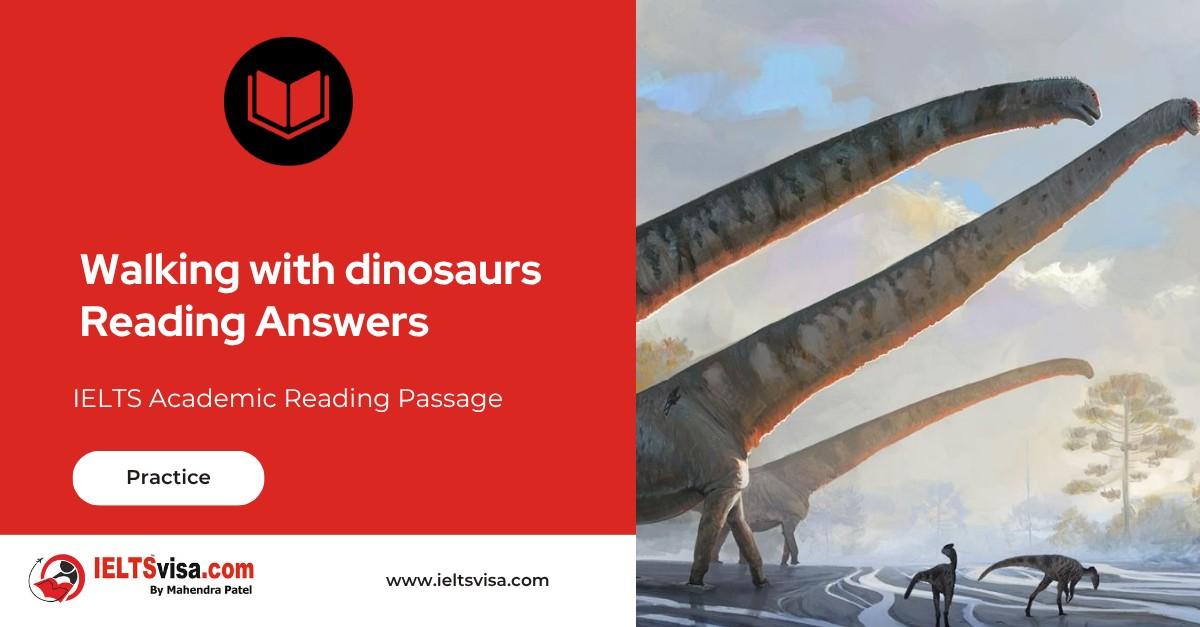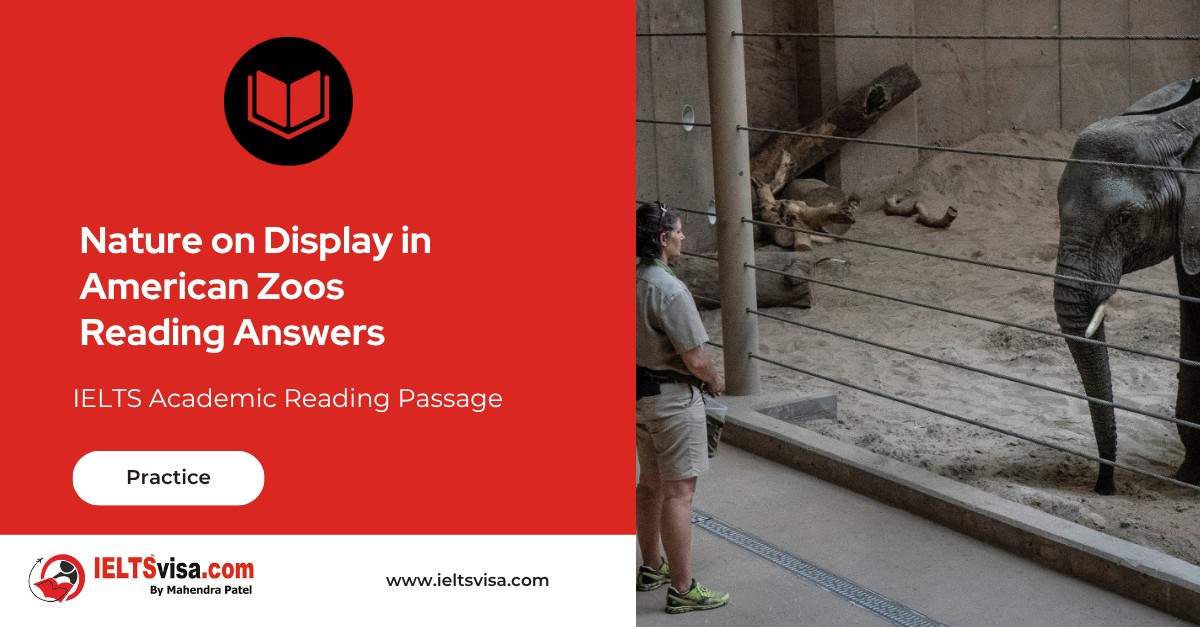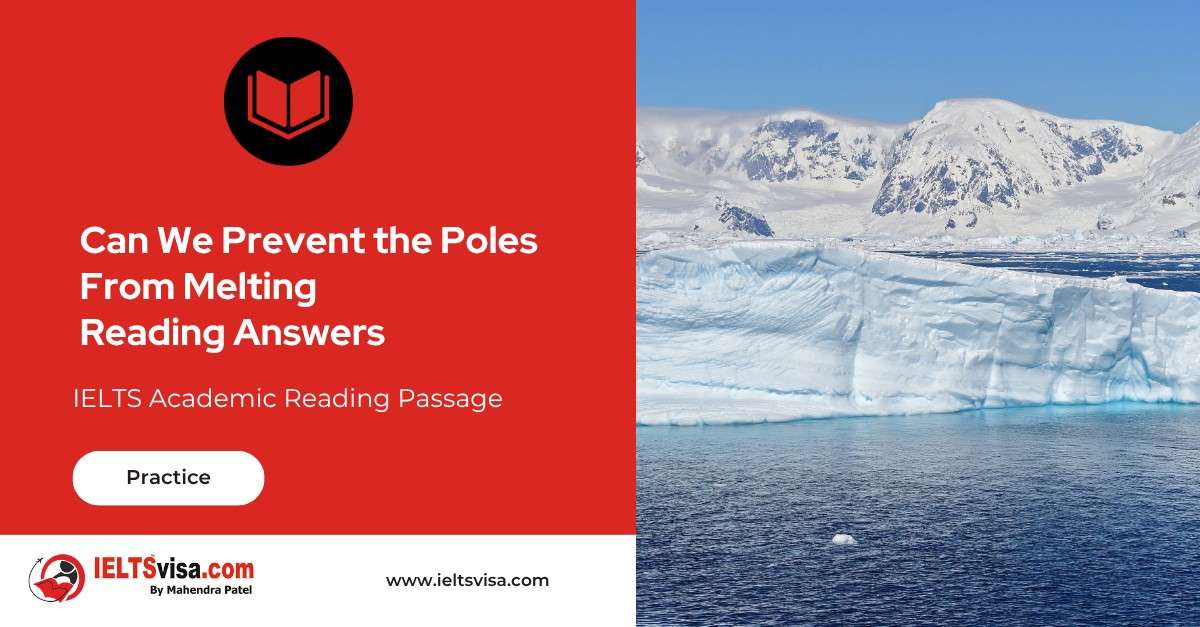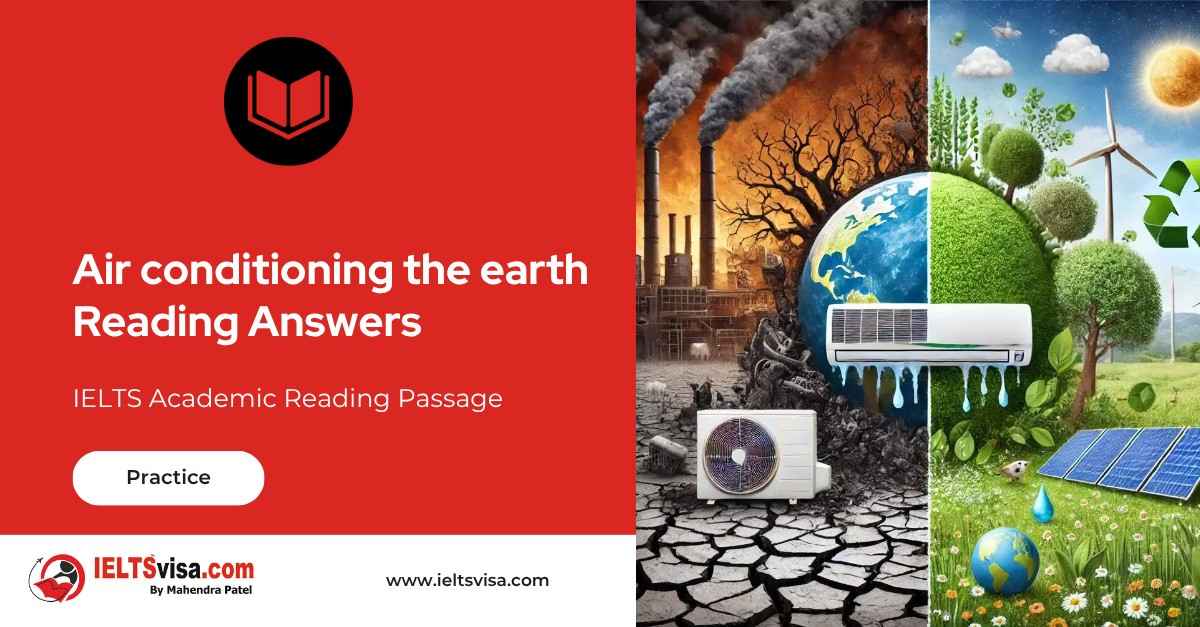The Immunisation Controversy Reading Answers
IELTS Academic Reading Passage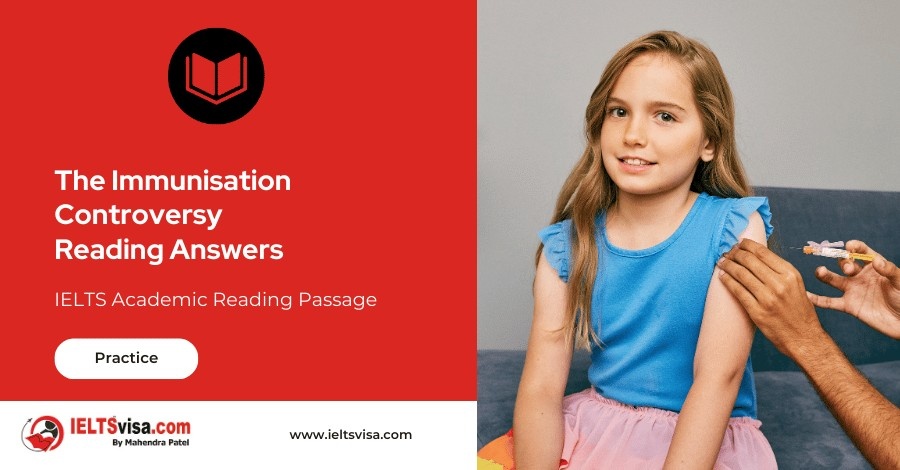
A. Carl Sagan once said, ‘Science loses ground to pseudo-science because the latter seems to offer more comfort. Yes, hard science, proven facts, and indisputable logic are often not sufficiently consoling, and thus routinely eliminated from the equation. Never, though, has this been more distressing than with the so-called ‘anti-vaccination’ movement. The end result has been the needless death of very young children, the most helpless of bystanders, and yet it seems there is no end in sight.
B. It is strange to believe that vaccination, with such a long and distinguished track record, is now under assault. Smallpox, for example, had killed over half a billion human beings throughout history but was eradicated – completely removed from the face of the Earth – via immunisation programs. Similarly, polio, rubella, whooping cough, measles, and a slew of other diseases which routinely decimated the youth are now, virtually, things of the past. The days of high infant mortality, short life spans, and nasty brutish lives are indeed long gone, and we owe it all to this crucial insight into disease prevention.
C. And this is part of the problem. With the once terrible epidemics lying outside of human memory, a growing number of people are convinced that vaccinations are no longer necessary, and that the small risk of adverse effects outweighs the benefits. One reason for this belief is that many genetic disorders related to brain impairment often emerge at around two years of age – that is, the same period in which babies receive vaccinations. If one in a hundred babies is destined to develop autism among a vaccinated group, then observable symptoms of the problem will likely appear after a vaccination shot, leading distraught parents to link one event to the other.
D. This misattribution is compounded by the Internet, which now hosts a sprawling forum of anti-vaccination lobby groups and their websites, full with unsubstantiated claims, fraudulent research, anecdotal evidence, and the passionate tirades of multitudes, firmly convinced of the correctness of their case. Authority is undermined, statistics ignored, and hard science excluded. Is it so surprising? If creationists and alternative medicine practitioners can gain respectability and widespread public and political support, so too can the pseudo-science of the anti-vaccinationists. When faced with this wave of propaganda, it would be hard for many parents, motivated by the intense desire to protect their children, not to be influenced.
E. At this point, it must be clarified that there is no credible evidence whatsoever to support the anti-vaccinationists’ claims. Over a score of peer-reviewed studies have found nothing to link the MMR (measles/mumps/rubella) vaccine to autism, or even the more subtle neurological problems, and every reason to continue with vaccinations. The so-called increase in autism so often attributed to vaccinations merely results from more accurate diagnoses.
F. Children who in the past would have been labeled as ‘retarded’ or ‘slow’ are now identified as having one of the three main grades of autism (which is probably genetically determined). Yet this argument falls on deaf ears, and the counter- claimants have succeeded in reducing vaccination rates among certain communities to the extent that outbreaks of preventable childhood illnesses (such as polio, meningitis, and measles) are occurring.
G. The MMR controversy is a sad case. In 1998, a high-profile paper linked this vaccine to autism. It was later shown that the author was receiving funds from various groups engaged in a lawsuit against vaccine manufacturers, and that the study was both ethically and methodologically faulty. Data had been manipulated, and results misreported. Similar studies found no link whatsoever, and in 2004, the medical journal which hosted the original article formally retracted its conclusion. Yet vaccination rates in the UK. had dropped to 80% in the subsequent years. In late 1999, a measles outbreak occurred in North Dublin (which had vaccination rates as low as 60%), resulting in 100 hospitalisations and three deaths.
H. One of the key arguments of the anti-vaccinationists is that they have the right to choose their medication. These people attack what they see as the impersonal, intrusive, and uncaring edi6ce of modern medical science. However, the success of immunisation programs depends on a sufficiently high number of the population being immune, which forces the disease to die out through lack of carriers.
If there are enough susceptible individuals to provide a chain of disease transmission, safety is compromised for all, and this is why free choice should not be an issue, particularly when the hard evidence presents an overwhelming case. Personally, I would have thought that when children started dying from preventable diseases, the antivaccinationists’ case would die also.
I. But there are other agendas at play. Anti-vaccinationists can posture as moral crusaders, dismissing those who support immunisation as being in the payment of big pharmaceutical companies, whom they see as dishonest and immoral. Talk show hosts, women’s magazines, paid ‘experts’, lawyers, and media celebrities, all benefit from creating controversy when none existed, while alternative medicine practitioners and snake-oil salesmen all oppose vaccination, believing that their own slew of pills, potions, and unproven expensive treatments do the job better. Against all this, how can rational science prevail?
Questions 27-33
Reading Passage Three has seven paragraphs, A-H. Choose the correct heading for Paragraphs B-H from the list of headings. Write the correct number, i-x, for each answer.
List of Headings
i. Easy publicity
ii. Increasing outbreaks of disease
iii. Some real reasons
iv. All or nothing
v. Autism on the rise
vi. Past successes
vii. A sad consequence
viii. An unfortunate coincidence
ix. A simple explanation
x. Some dubious evidence
27. Paragraph B
28. Paragraph C
29. Paragraph D
30. Paragraph E
31. Paragraph F
32. Paragraph G
33. Paragraph H
Questions 34-36
Choose THREE answers from the list and write the correct letter, A-G, next to the questions. For which THREE reasons, A-G, do anti-vaccinationists oppose vaccinations?
A. Believing they cause problems
B. Wanting to save money
C. Wanting freedom of choice
D. Not believing drug manufacturers
E. The pain of vaccinations
F. The influence of creationists
G. Preferring alternative medicine
Question 34:
Question 35:
Question 36:
Questions 37-40
Choose the correct letter, A, B, C, or D.
37. Autism is
A. sometimes caused by vaccinations.
B. a very subtle neurological disorder.
C. most likely inherited.
D. increasing.
38. The 1998 paper was
A. the cause of falling vaccination rates.
B. defended by the medical journal.
C. verified by other studies.
D. funded by patients.
39. Vaccinations
A. have removed most smallpox from the world.
B. are supported by solid evidence.
C. are defended on some websites.
D. are no longer necessary.
40. Alternative medicine practitioners
A. believe vaccinations are generally good.
B. can be impersonal and uncaring.
C. are often supported by politicians.
D. are often quite cheap.

Solution For: The Immunisation Controversy
Reading Answers
| 27 vi | 28 viii |
| 29 i | 30 ix |
| 31 x | 32 iv |
| 33 iii | 34 |
| 35 | 36 A,C,D |
| 37 C | 38 A |
| 39 B | 40 C |
Review and Practice
- Regularly practice with IELTS reading samples and time yourself to get used to the pressure of the exam.
- Review your mistakes to understand where you went wrong and how to avoid similar errors in the future.
Our Books
Master IELTS Speaking Part 1
IELTS Writing Task 1 Book
IELTS Writing Task 2 Book
The Immunisation Controversy Reading Answers Explanation
Comin Soon
Practice IELTS Other Modules
IELTS Listening
The IELTS Listening test assesses how well you can understand spoken English in various contexts. It lasts about 30 minutes and is divided into four sections with a total of 40 questions. The listening tasks become increasingly difficult as the test progresses.
IELTS Academic Reading
The IELTS Academic Reading section assesses your ability to understand and interpret a variety of texts in academic settings. It is designed to evaluate a range of reading skills, including skimming for gist, reading for main ideas, reading for detail, understanding inferences, and recognizing a writer's opinions and arguments.
IELTS Speaking
The IELTS Speaking test assesses your ability to communicate in English on everyday topics. It lasts 11-14 minutes and consists of three parts: introduction, cue card, and a discussion based on the cue card topic.
IELTS General Reading
IELTS General Reading tests your ability to understand and interpret various types of texts. Here are some key areas and types of content you can expect to encounter in the reading section, along with tips for effective preparation.
IELTS Academic Writing Task 1
In IELTS Academic Writing Task 1, you are presented with a visual representation of information, such as graphs, charts, tables, or diagrams, and you are required to summarize, compare, or explain the data in your own words.
IELTS General Writing Task 1
In IELTS General Writing Task 1, you are required to write a letter based on a given situation. The letter can be formal, semi-formal, or informal, depending on the prompt. Here’s a breakdown of the key components to include in your letter
IELTS Academic Writing Task 2
In IELTS Academic Writing Task 2, you are required to write an essay in response to a question or topic. Here’s a guide to help you understand the essential elements of this task
IELTS Exam Tips
To succeed in the IELTS exam, practice regularly, familiarize yourself with the test format, improve your vocabulary, develop time management skills, and take mock tests to build confidence.
Grammer for IELTS
Grammar is the foundation of effective communication in English. Understanding tense usage, subject-verb agreement, and sentence structure enhances clarity and coherence in writing and speaking.
Vocabulary for IELTS
Vocabulary plays a crucial role in the IELTS (International English Language Testing System) exam, especially in the Speaking and Writing sections. Here’s an overview of why vocabulary is important and how it impacts your performance
RECENT IELTS SAMPLES QUESTIONS AND ANSWERS
Walking with dinosaurs
Peter L. Falkingham and his colleagues at Manchester University are developing techniques that...
Money as the Unit of Amount Reading Answers
The most difficult aspect of money to understand is its function as a unit of account. In...
WEATHERING IN THE DESERT
In the deserts, as elsewhere, rocks at the earth's surface are changed by weathering, which...
Nature on Display in American Zoos
The first zoo in the United States opened in Philadelphia in 1874, followed by the Cincinnati...
Can We Prevent the Poles From Melting
Such is our dependence on fossil fuels, and such is the volume of carbon dioxide we have...
Air conditioning the earth reading answers
The circulation of air in the atmosphere is activated by convection, the transference of heat...

